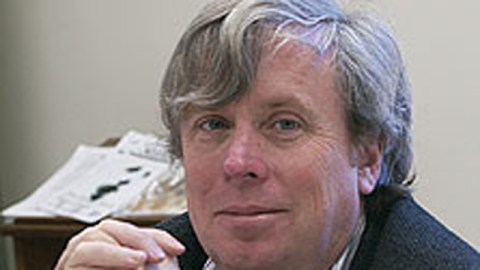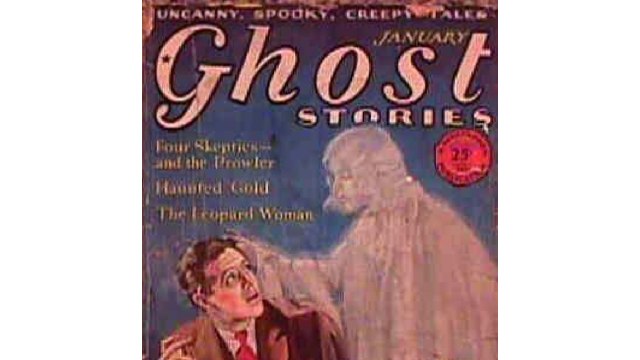Does the GPS Take the Fun Out of Driving? And Make Us Stupider, More Locked Up in Ourselves, and Less Open to the World?

I just read this great essay by Ari N. Schulman in that indispensable journal THE NEW ATLANTIS with the telling title “GPS and the End of the Road.” One of Schulman’s big ponts, supported by literary geniuses from Mark Twain to Walker Percy, is that the GPS has ruined the liberating experience of being on the road.
Not only that, it has made us stupider and less attentive, If you’re not paying attention to navigation, you’re likely not thinking much about actually driving either:
The more significant lesson of these stories and statistics ought to be that GPS devices, as we use them, erode our judgment and faculties, making us worse drivers. Consider the act of driving with the aid of a map or other directions learned in part before undertaking a trip. Researcher Véronique Bohbot of McGill University has identified two basic ways that people navigate. One involves learning the spatial relationships between various landmarks and destinations and forming a sort of mental map; the other involves memorizing sequences of turns, with landmarks serving as cues. This is an old and well-known division, but either alternative requires paying careful attention to your surrounding environment when navigating: you have to notice the landmarks, sense the distance passed, and match these up to your internalized directions. These necessary objects of attention in navigation, as it happens, overlap with those of driving, particularly insofar as they reside in the same visual space. Paying attention to where you are and where you’re going is bound up in the same general act as paying attention to other cars around you, where you are in a lane, the curve of the road ahead of you, the presence of barriers or pedestrians, and so on.
And:
The decline of driving, and of finding our own way around, means that we are losing a broad set of skills and practices. And while it is true that the rise of driving itself spelled the decline of other skills and practices, driving also opened up in their place a wide range of new faculties for us to exercise — new modes of excellence, and novel, exciting, adventurous ways of experiencing the world. But if the glorious future consists mostly of things like getting to text more, oughtn’t we to wonder what new skills, what novel forms of adventure, are taking the place of what is being lost with the decline of driving and navigation.
The coming of the car cost us plenty of skills, but it also gave us new ones. Driving well is a real form of human excellence, And being on the road on your own looking for adventure or some indispensable insight, as in Twain’s Huck Finn or Kerouac’s On the Road, is a way to display a relatively distinctive American form of virtue. It’s a view of freedom that’s about who you are, about being a lot more than being free from necessity to escape into the some virtual world—say, the world of texting. The GPS, by contrast, costs us skills and character without providing any replacements. It helps turn us into displaced persons, and so people with fewer real responsibilities than ever.
So here is one of Schulman’s conclusions:
Seen in the right way, what the two novels show us is not the virtue of quitting civilization, but the freedom that comes from finding our own way through a world that is not of our own making — and with it, a glimpse of the possibility of reaching out beyond our everyday selves into something greater. And the progression from Huck Finn to On the Road suggests that the advance of technology and civilization need not spell the end of this possibility, but just the shift of its scenes.
Why, then, is it so hard to imagine some form of this journeying as occurring today? In part it is because of that homogenization of place enabled by the open road — the lessening of its difference and so its significance. More fundamentally it is because the mode of travel on the rise today is antithetical to the mode found in On the Road and its predecessors. Rather than being filled with adventure and the possibilities of freedom, the GPS-enabled, location-aware adventures of Sal and Dean or Huck and Jim somehow sound dreary before they have begun, filled with anticlimax, boredom, and restlessness. How can this be, when what these technologies seem to promise is a way of freshly opening up the world?
That boredom and restlessness is why today’s efforts to recapture the adventure of self-discovery on the road are actually anti-technological, fantasies about the new birth of freedom made possible by technology’s collapse:
There are a number of genres popular today that try to recapture the journeyer’s spirit of discovery, but while earlier works could still depict an escape within civilization, today’s travelers leave ordinary civilization altogether. Post-apocalyptic tales like Cormac McCarthy’s The Road, along with the rising cult of zombie fiction, recapture a sense of newness of our world by depicting a disaster-stricken version of it (recalling Percy’s recommendation). Science fiction lets us escape to other, new worlds (where even cowboy-style frontiers are available again, as in the short-lived TV series Firefly). And of course the hugely popular fantasy genres recapture a spirit of adventure and discovery — but only through fantasy.
But the trouble, of course, for our spirited and erotic young men and women is that those fantasies are merely fantasies or not real possibilities open to them. Driving without a GPS, when one is available, just isn’t so impressive. On the road again (with the GPS) wouldn’t be much of a country song.
I, for one, love my GPS machine, because it frees me to fake being bold in travel. If I make an error, the lady in the machine quickly recalculates, and so I can go from one part of Atlanta to another (a spread-out and confusing city) without fear of being lost. I admit l long for that freedom from driving for almost anything else. I would certainly hire a chauffeur if I could. Sadly, I haven’t been a young man pushing against civilization and longing to be on my own—relying on my own powers alone—for a long time. Well, maybe I was never that young.





